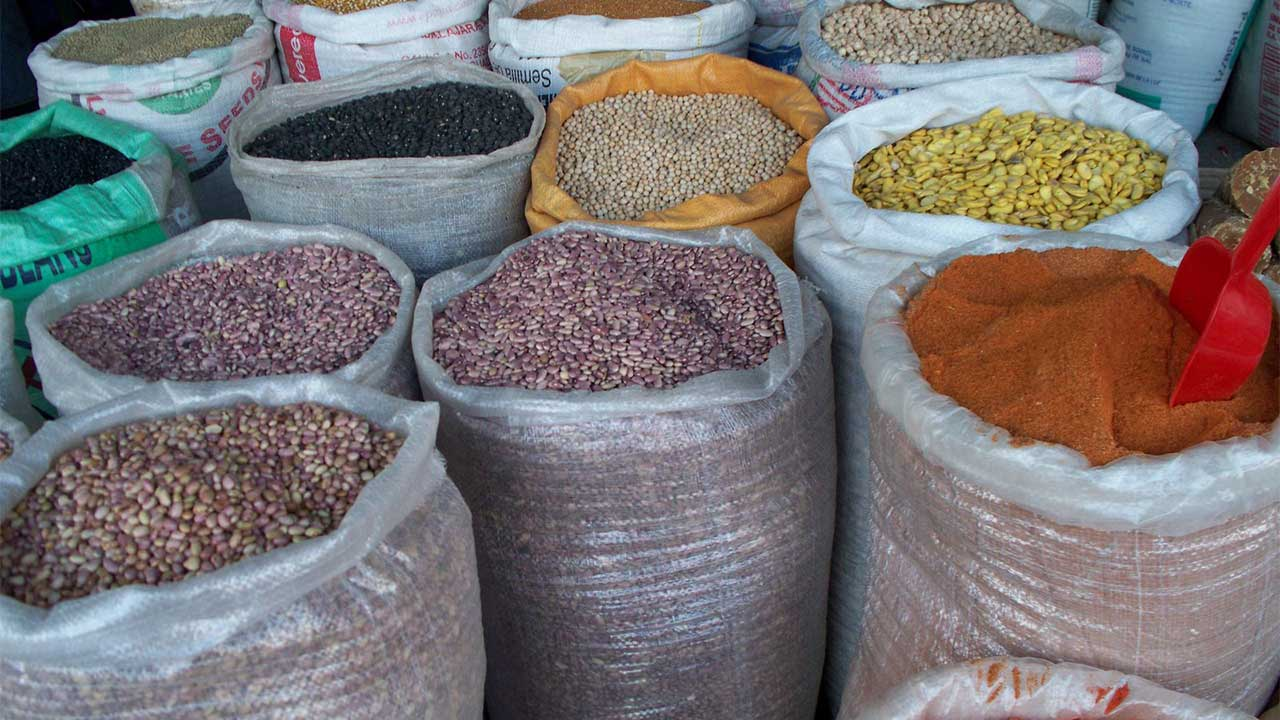By Alkali Amana
Coronet Blockchain is Africa’s front tier tech space from South Africa as an innovation building a B2B2C Marketplace that provides blockchain vetted commodities such as human hair extensions, hair care products & salon equipment to African salons, distributors & retailers from ethical global manufacturers at lower sourcing costs. Leading the successful venture are Co-founders Shadrack and Pretty Kubyane, who have as a success story, the adventure of scaling a $500 business to a $2 million business in 36 months.
Detailed here is African Leadership Magazine’s exclusive interview with Mr. Shadrack Kubyane, who serves as the CEO of Coronet and also as Africa’s foremost Blockchain evangelist:
| My early lived business experiences started from within a family business. Across the window of 8 years of age till 13, my mom started multiple businesses and handed them over to me to manage. My last Corporate job was with Deloitte. Then I Co-Founded a management consulting firm with a speciality focus on market entry, growth and scaling businesses i.e., taking new products onto the market and business expansions. One of those flagship projects breakthroughs led to the founding of Coronet Blockchain when we scaled an informal business from 500 USD to 2 million USD in 36 months leading to more brands requiring the same success at scale. |
|
Hello, Mr. Kubyane. In a few words, kindly introduce yourself and give us some insight into your rich entrepreneurial background.
You are very active in the blockchain industry as a leader and Co-founder of a visionary enterprise. What is the leadership structure of your enterprise like?
| Our Coronet leadership structure exists across 4 categories.
Exco: this includes the co-Founders, Advisory board, based here in Sandton South Africa.
Technical: we have a team of engineers, architects, design thinking and user experience across 5 countries via our seed capital funder, across South Africa, Dubai, Saudi Arabia, US, Egypt and London.
Research & Development: we work with 4 academic institutions across US and South Africa at the Professorship level, students/interns, and a vast alumni network [in the industry] for market validation and go to market strategies for map the trajectory of our solution across Africa & other markets.
Administration: including customer service and onboarding team, within each country of delivery. |
|
What inspired the creation of Coronet Blockchain and what services do you offer that make your company stand out from other tech-based firms/companies within the African terrain?
| When we scaled a human hair extensions brand from 500 USD to 2 million USD within 36 months, which used to operate out of a chaotic taxi rank into 4 bricks & mortar branches, from 2 employees to a team of 40. We set up 2 of those 4 branches inside 5-star hotels. That is when multiple brands across Africa approached us demanding the same success story. That is when we deemed it fit, after carrying out continent-wide due diligence, to set out to create a category level solution to deliver transformation at scale. Our blockchain-enabled marketplace solution focuses on product provenance, access to market through eCommerce and business sustainability by providing business systems such as client bookings, smart procurement, inventory management. |
|
Where on the continent do you carry out business operations, and what is your target for Africa with your business model and operations, considering the opportunities available and how well they can be utilized to help the continent achieve global status?
| Our priority focus from the word go: has been designing supply chain solutions for the Africa continent, however, as of recent we have been approached by a number of regions that are outside Africa. With that being said even though we have a global strategy our solution infrastructure is being finalised, to pave the way to set up in multiple countries, beyond South Africa. Particularly: South Africa as a base, then Nigeria, Ethiopia, Kenya, Ghana, and others. |
|
It is evident you have great plans for Coronet and your venture into Digital Blockchain infrastructure, what is the level of visibility you hope for your company to achieve in the coming years and what strategic measures are you putting in place to realize plan?
| There are developmental milestones that our venture through leveraging blockchain is aligned to enable or make attainable for the economies within which we operate. Attaching wheels to practically help operationalise The Africa Continental Free Trade Agreement (AfCFTA), by reconfiguring supply chains, into see through transparent supply chains that are equitable and inclusive. Secondly: our model, apart from being profitable, also fulfils 9 out of the 17 Sustainable Development Goals (SDGs), as we level the playfield for the small to medium size business, as they engage big businesses.
|
|
What level of security does Digital Blockchain Infrastructure offer and how did you come to the realization that it is a viable means to be used in achieving continental growth for Africa?
| Both my co-founder [and wife] and I come from a village upbringing so from early on we have come to appreciate a deeper sense of community, it is in our DNA. Furthermore, I was born at the intersection of 3 regions, within South Africa (known as Provinces) from you can say I am a born diplomat. Secondly: our passion for Africa and strategy/growth muscle memory, has always enabled us to have capacity for scale and to cultivate a Pan Africa facing world view, with a commitment to improve lives, beyond profits, not as an after-thought but a tangible daily focus in all we do. Thirdly, our journey with AfCFTA ecosystems date back to 2017, where we have had a front row seat on the ratification of the agreement and naturally, we looked for ways to aid its implementation once our solution architect begun taking shape.
On the safety element: Blockchains, at inception, rely heavily on cryptography to achieve their data security. Given that the hash of each block is generated based on both the data contained within that block and the hash of the previous block. These hash identifiers play a major role in ensuring blockchain security and immutability. Think of Blockchain as being more of a community than a technology: meaning the tech components simply enable or achieve the collective community goals, thus a higher accountability. |
|
As an enthusiast of the Free Trade Area and someone who is keen on the integration of blockchain to aid key sectors such as agriculture and production in Africa, how do you intend to blend and model your innovation with the AfCFTA to achieve maximum output for both your business and the continent?
| We have a scenario here in Africa where for the past 400 years our continental supply chains and trade corridors have been overly reliant on raw materials supply type economic reliance, only to have those same raw materials come back to African countries as finished goods, costing a lot more, crippling these economies.
Through AfCFTA: as countries leap towards deepening involvement into value chains to shift towards being producer economies not consumer-based economies a critical need is needed to add credentials, believability and global grade supply chain efficiencies to these trade corridors, for resilience, inclusion and sustainability.
To pandemic proof our African economies, leveraging blockchain is necessary. One scenario: our joint food import bill currently is seating at 35 billion USD, with 1 billion citizens, and yet: if technology, and priority investments in agricultural infrastructure are not made we will have that bill grow to 100 billion USD by 2025. That is too much reliance on foreign economies for our daily sustenance. Blockchain at scale as we deploy it, will demonstrate exactly where our corridors are fractured, gaps and inequalities, as well as enabling decision making towards restorative measures whilst ensuring that the 99% small to medium businesses get to tangibly benefit from AfCFTA agreement, well beyond the 1% big businesses. The three Ts of Blockchain: Truth, Transparency, Traceability are valuable to enabling overdue supply chain reforms at scale. |
|
- The awareness on blockchain on the African continent seems to need some valuable input to increase its reach, what relevant measures can be put in place to create a widespread knowledge of Blockchain and the opportunities it presents to Africa, especially towards the huge youthful population?
| The leveraging of Africa’s youthful population is key if we are to respond to the job creation demands, not only today but down the line. In 718 Saturdays from today, Africa’s population will double from the current 1 billion to 2 billion, by 1 Jan 2035. Would that be double the problems or double the opportunities? Our inclusiveness to have women and youth participate in our economies with all hands-on deck is critical.
Blockchain is a collaborative technology, meaning as a Truth Machine and a Trust Machine: blockchain reveals your development matrix, and financial inclusion in real time, no need for surveys that take months, in seconds you will through the Blockchain grid, determine the who (involvement), the what (volumes and quality) and fairness (fair trade) and equitability across your entire value chains, macro and micro supply chains. To ensure that a united Africa is not a myth but a measurable reality, as we leap-frog, what legacy economies have in place, blockchain as an emerging tech is positioning Africa to not do things, the conventional way, by way of heavy investments in quality assurance, etc, but transcend those frameworks, at scale, one value chain at a time.
Yes: blockchain across the globe, has for the last 10 years, since the early use case via Bitcoin, has been trapped in that crypto currency comfort position, into more use cases beyond crypto. We are seeing a scenario where more use cases are coming onto the grid. We are in talks with strategically placed Development Agencies to add agility to increasing continental level awareness and adoption.
|
|
As an entrepreneur, what would you identify as Africa’s biggest strength which can be leveraged on to compete on a global stage?
| One word: resilience. We are as tough as nails, as Africans. We must neve take that for granted. We have been through a lot in the last 400 years. Which built unparalleled resilience into us. As we reposition our economies, entities and communities to take centre stage onto the global economy nerve centre. To punch beyond our weight, we must turn our pain into power, whilst we venture beyond what is possible, to leverage tech and available methodologies that we once foreign to our known normal, we must unleash our innovative know-how and allow ourselves to see an Africa where multiple generations work comfortably together.
As I mentioned in Ethiopia, we can no longer solution for the youth or for women in their absence, but we must insist on a co-creation reality where all groups within society are in the solution cockpit, collaborating to shape that Africa we want. We cannot have a scenario where the millennials are pitted against the boomers or older generation. No pointing fingers, no bias towards tech, or automation anxiety, we must lower the walls and see a culture emerge where the old and new converge. Technology shakes hands with known established traditions, and multiple genders are allowed at the table.
To compete on the global stage: we will need all hands-on deck, and we will need to shed our outdated mindsets that helped to keep us poor as a continent and cultivate collaboration as a new culture. |
|
Thank you for your time.


